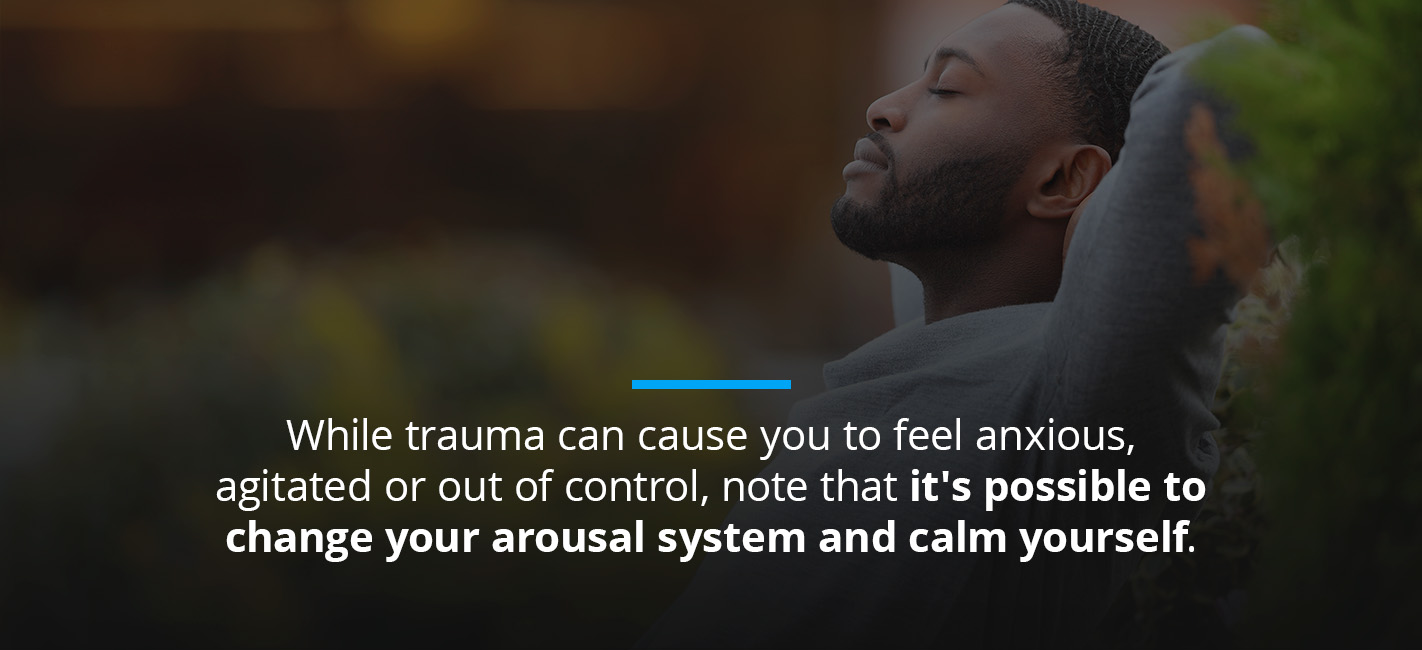What Is Trauma?
Trauma is a response to an event a person finds highly distressful, such as abuse, being in an accident, or experiencing or witnessing violence. Not everyone will develop trauma, and there are various types. Some people could develop symptoms that resolve after a few weeks, while others may develop PTSD, which typically has more long-term effects.
Examples of traumatic situations include:
- Being in an accident
- A natural disaster
- Emotional or physical abuse
- Neglect
- Experiencing or witnessing violence
- Death of a loved one
- Being in a war zone
Traumatic events can occur at any age, and each person’s experience is unique. While it’s common to experience shock and denial immediately after the event, some people can experience long-term effects of trauma, such as persistent fatigue, constant flashbacks, or even physical symptoms like headaches or nausea.
How Does Trauma Impact Mental Health?
Everyone reacts to trauma in different ways, experiencing a range of mental health effects. Signs of emotional trauma can include:
- Emotional disturbances: This could include extreme anxiety, sadness, anger, or survivor’s guilt. People may also develop depression and anxiety disorders or experience dissociation, a natural defense mechanism where a person feels involuntarily detached from reality.
- Sleep difficulties and pain: Trauma can cause the body to release stress hormones even when not in danger. Living in a state of constant hypervigilance can cause people to experience sleep problems and physical pain like insomnia, nightmares, muscle tension, and body aches.
- Anhedonia: Another common long-term impact of trauma can include anhedonia, or the inability to feel pleasure. It is often associated with major depressive disorder and changes in the brain’s reward system following a traumatic event.
- Relationship troubles: Trauma can cause people to withdraw from loved ones. This can result from depression or other emotional disturbances. Numbness and disassociation can also cause a person to lose interest in social activities, leading to relationship troubles in the long run.
- Post-traumatic stress disorder (PTSD): Experiencing a traumatic event can lead to the development of PTSD. Studies show that people with PTSD have a smaller hippocampus or the part of the brain responsible for memory and emotions. PTSD can cause symptoms like intrusive thoughts, flashbacks or nightmares, avoidance behaviors, trouble focusing, and the constant feeling of being on edge.
Everyone has different trauma response behaviors, and there is no right or wrong way to feel. Note that if you experience symptoms that worsen, last for a long time, or impact your daily life, it’s likely time to seek professional help, as this could be a sign that you have PTSD.
Tips for Handling Trauma
Trauma symptoms typically last a few days to a few months and may gradually dissipate as you process the event. But even after feeling better, you might be troubled occasionally by painful memories or emotions. The following are tips you might try to help heal from your trauma and prevent any lasting effects.
1. Exercise and Get Quality Sleep
Trauma disrupts the nervous system, placing you in a constant state of hyperarousal and fear. Exercise and movement can help your body return to a normal state as you burn off adrenaline and release mood-boosting hormones like endorphins, dopamine, and serotonin. Try to exercise for at least 30 minutes a day, and aim for rhythmic exercises that engage the arms and legs, such as walking, running, swimming, or even dancing.
Additionally, it’s important to get plenty of sleep. While trauma can disturb your normal sleep patterns, a lack of quality sleep can worsen symptoms. For this reason, try to go to bed and get up at the same time each day and get seven to nine hours of sleep each night.
2. Eat a Well-Balanced Diet
A nutritious diet can help maintain energy levels and minimize mood swings. Avoid sugary and processed foods and add plenty of fruits, vegetables, and omega-3 fats to your diet. For example, salmon, walnuts, flaxseeds, and soybeans can all benefit your mood.
At the same time, be sure to avoid drugs or alcohol, which can exacerbate trauma symptoms and increase feelings of depression, anxiety, and isolation.
3. Practice Calming Techniques
While trauma can cause you to feel anxious, agitated, or out of control, note that it’s possible to change your arousal system and calm yourself. Relaxation techniques like yoga, deep breathing, or meditation can ease anxiety symptoms related to the trauma while offering a greater feeling of control.
For example, mindful breathing and sensory input can help when you’re feeling disoriented or upset. Take a few deep breaths and focus your attention on each breath you let out. Engaging the senses, whether that’s petting an animal, listening to music, or doing another activity you know will soothe you, can also be helpful when experiencing trauma symptoms.
4. Connect With Your Support System
While you may be tempted to withdraw from others after a traumatic event, connecting with friends, family, and loved ones can help you heal. Be sure to maintain your relationships and continue participating in social events. Being with your support system doesn’t have to include talking about the trauma. Just the comfort of being engaged and accepted by others can be enough.
It’s important that you have someone you can share your feelings with, such as a trusted friend, family member, or counselor who will listen without judgment. A support group can also be immensely helpful, as you can talk to like-minded people and gain coping tips to inspire your recovery.
Know When to Seek Professional Help
Healing from trauma takes time, and everyone recovers at their own pace. But if months pass and your symptoms worsen or do not ease, it might be time to seek professional help. Seek help for your trauma if you experience the following:
- Have trouble functioning at home or work
- Have severe fear, anxiety, or depression
- Feel emotionally numb or disconnected from others
- Struggle to make close, meaningful relationships
- Avoid more and more things that remind you of the trauma
- Experience distressing nightmares, memories, or flashbacks
Working through trauma can be difficult, so it’s best to get the help of an experienced therapist. There are several effective therapies for trauma and PTSD, such as cognitive-behavioral therapy (CBT) and dialectical behavior therapy (DBT). Medication can also help manage symptoms of trauma or PTSD, such as anxiety, depression, or sleep troubles.
Get Compassionate Care at Merrimack Valley Psychological Associates
Everyone experiences trauma and healing differently. While it can be overwhelming to handle the symptoms and recover on your own, the professionals at Merrimack Valley Psychological Associates are here for you. Our licensed therapists will devise a treatment plan that works best for you, considering your unique experiences to provide effective, evidence-based treatments.
To get started, contact us today to schedule an appointment.



